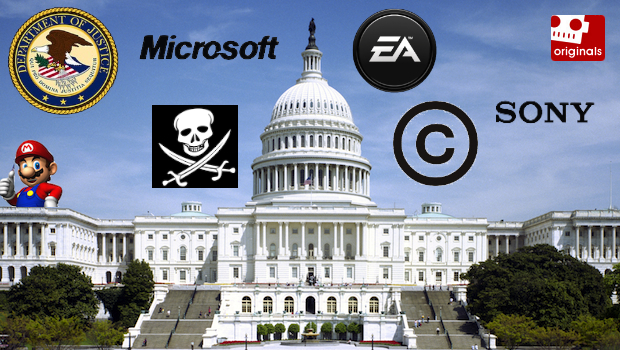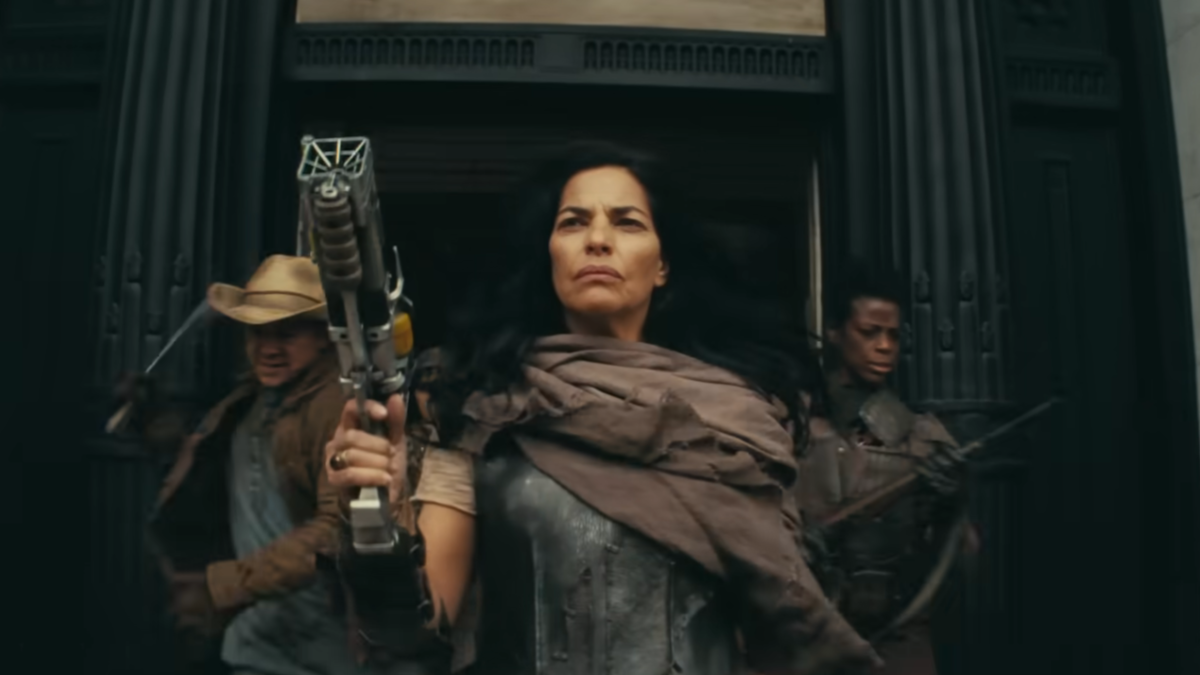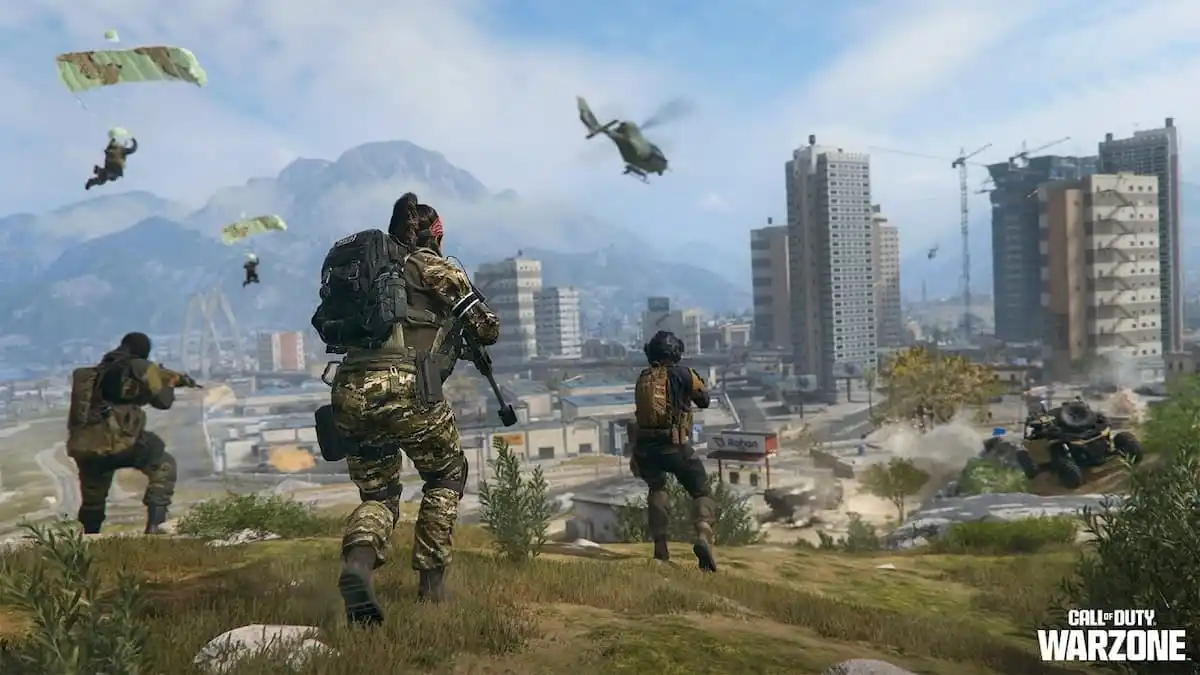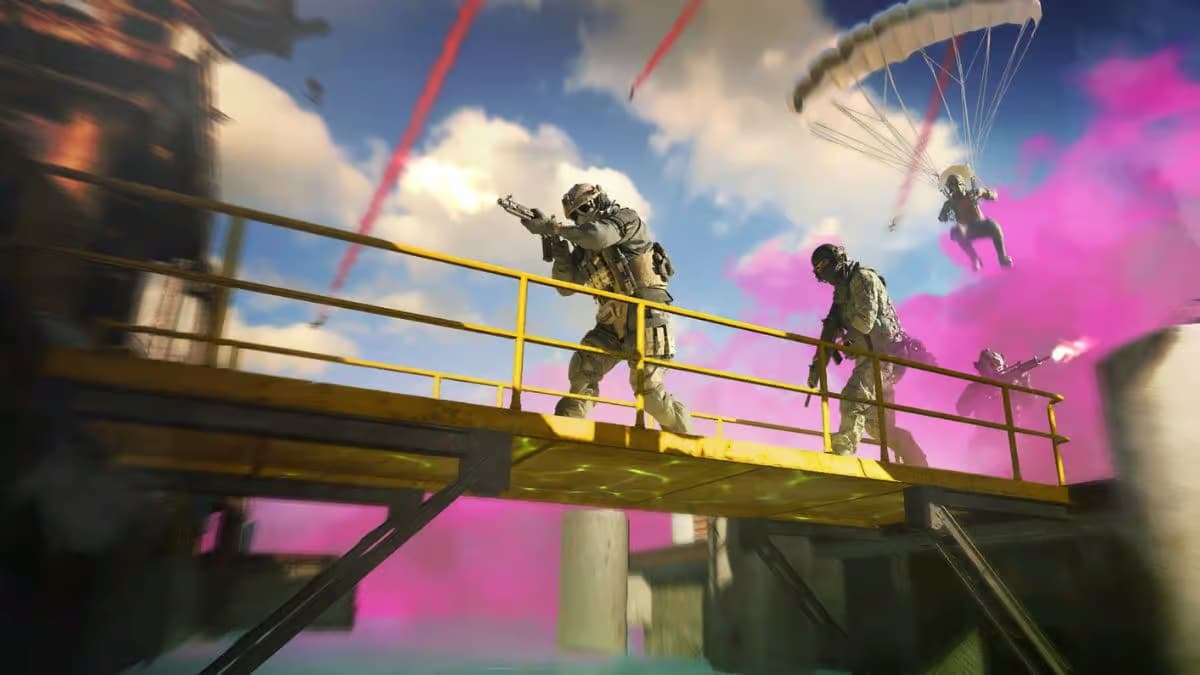If you’re at all tapped into the world of tech, you’ve no doubt noticed that there is a higher than usual number of acronyms flying around as of late. While gamers typically find themselves embroiled with issues of DRM, the Senate’s recent PROTECT Intellectual Property Act (PIPA) and the House’s Stop Online Piracy Act (SOPA) have raised some hackles here on Destructoid, and rightly so.
We’re not the only ones upset, though. I recently got in touch with Trevor Longino, head of PR and Marketing at Good Old Games, a company that has spent its entire existence fighting against a tech industry that wants tighter and tighter control over our games, to get another perspective on PIPA, SOPA, and the effects these bills might have on game consumers.

Here is a bit of a primer: In the United States, economic times are tough, and politicians are looking down the barrel of upcoming elections. Needless to say, they’re worried that things haven’t gone quite as planned, and many are looking for a way to bolster support and make some powerful friends before the next round of elections.
What better way to do that than get cozy with to the Hollywood elite and write a few friendly laws to support those in control of one of the United States’ greatest exports, entertainment? Enter PIPA and SOPA, two sister pieces of legislation aimed at allowing the government and big entertainment companies to wrap their gnarled, bony fingers around the throats of consumers.
Ok, ok. That’s a little one sided and no doubt sounds hyperbolic, but trust me when I say that these bits of legislation could fundamentally change the way we use the Internet for the worse. If someone is hosting copyright-infringing materials on their website, then a copyright holder should have a right to go after them, right? I think we can all agree on that, but PIPA and SOPA make this process far too simple by removing basic protections.

Suddenly, if you’re an advertiser on a website where copyright infringing material shows up, you’re liable. If you sold an IP address to someone who then goes and does something illegal with it, you’re liable. If someone complains to the government about your website, you might end up on a government blacklist and will be legally removed from Google search results. More than that, IP holders would be allowed to threaten and scare off everyone involved with a website from the top to bottom without ever taking someone to court.
PIPA and SOPA profess to protect IP, but in reality, they offer an unprecedented degree of power to publishers and other IP holders all in the name of stopping piracy and “protecting” IP holders. PIPA and SOPA might well allow big companies to curate the content of the Internet as a whole, and that’s something we should all fear. Needless to say, if you’re on this website, you have an interest in keeping the Internet free from government and industry control, but it hits even closer to home than that.
In my interview with Trevor Longino of Good Old Games, we discussed the effects of piracy and the ways PIPA and SOPA might effect games and commerce on the Internet.

In your opinion, what effect is piracy having on the entertainment industry? On the games industry specifically?
There’s no disputing that piracy is hurting the industry. Even though we’re very, very opposed to DRM, we don’t argue that fact, but there are a few facts that are worth noting. Piracy isn’t nearly as devastating as some studies would have you believe. People throwing around numbers in the billions of dollars of lost revenue are making some false equivalencies.
Every copy of a game that is downloaded does not equate to a lost sale. In many cases, torrent trackers display inflated numbers of seeds and downloads. Those scary numbers aren’t real, and by letting ourselves be deluded as to the impact of piracy, we don’t rationally look at what it really means for the industry and how to go about minimizing it in an effective manner.
Legislation, DRM, even advertising campaigns (“Don’t copy that floppy!” should ring a bell for gamers of a certain age) aren’t what reduces piracy. Convincing your customers that what you are selling is worth their money is the only way to do that.
Many big entertainment conglomerates have argued that the PROTECT IP Act is necessary to stop pirates from “stealing” their products. It even states that it has been created “to promote prosperity, creativity, entrepreneurship, and innovation by combating the theft of U.S. property….” What effect do you think DRM is having on “prosperity,” “creativity,” and “innovation”? Is DRM necessary to stop gamers from “stealing” their entertainment?
DRM doesn’t stop theft of games, let’s make that clear. It’s a false argument to say it does. Every game that came out this year — every single one regardless of the kind of DRM on it — was pirated. Frequently before the game was even for sale on retail shelves but within 48 hours after launch, either way.
There’s a whole industry devoted to selling DRM solutions to publishers and developers, and no one seems to be clued into the fact that it doesn’t stop piracy.
If DRM doesn’t stop theft, what does? Well, according to that very interesting survey that Vigilant Defender conducted a few months ago, the value of the game offer. Almost 50% of the users surveyed stated that one of the main reasons why they pirated games was the lack of perceived value of the package. Either they wanted the game for less money or they wanted more bonus content in the package. That should sound familiar, given that it’s GOG.com‘s business model.
DRM isn’t necessary to curb piracy. We’ve proven that. Make the value of what you sell evident, and you’ll reduce the numbers of gamers who don’t pay for the games they play.

The PROTECT IP Act allows IP holders to not only request that sites take down content which they believe is copyright infringing but also allows IP holders to go after advertisers on the website, domain registrars, and payment processors. These people would share liability for any illegal actions a website might be taking. Does this seem fair?
That’s a tricky question and a bit of a loaded one — different cultures have different expectations for “fair.” I don’t think I can judge whether it’s fair or not. I think it is an inelegant solution to the problem of piracy, and I do not think that it will be effective. There is a host of reasons why it fails to perform as well as even the flawed DMCA does, and I do think it will have a definite chilling effect on Internet commerce.
America — and I speak as an American citizen, here — is losing ground to new marketplaces across practically every industry. Internet businesses are one of the things that we still excel at, and handicapping ourselves by creating what is more or less our own bowdlerized version of the Internet will only hamper our ability to compete in this arena too. It seems short-sighted.
Search engines are under attack too. The PROTECT IP Act would require search engines like Google to stop listing sites in searches if the Department of Justice puts the site on its “blacklist.” This does not require going to the courts. What potential problems can you foresee websites like Good Old Games or other digital distributors might face as a result?
That depends on the level of abuse the system sees. Currently, some people abuse things like the DMCA requirements for takedown notices, forcing content to de-list that they don’t even own the rights to. I can see the possibility that some people could definitely exploit this “blacklisting” for their own purposes, which would cause an immense amount of trouble for the website that has been blacklisted.
In general, for companies like GOG.com, I don’t foresee a particular problem. We’re a legitimate company, we have excellent customer service, we have a strong reputation in the industry, and we obviously have the legal rights to sell the games that we sell. I don’t think we’re at risk for being targeted as a scam.
However, a lot of the abandonware websites (sites that take a curatorial view of their downloads, saying that they’re preserving these games from the ash heap of history) that have games that GOG doesn’t sell yet could certainly find themselves in a bad situation. Anyone who advertises on these websites could also find themselves in a certain amount of hot water, which will cause the abandonware sites problems even if they aren’t directly targeted for blacklisting. Advertisers will leave in droves.

Do you think gamers should be worried about the PROTECT IP Act and Stop Online Piracy Act? What would you suggest they do if they don’t approve?
I don’t think that the problems of PROTECT IP and SOPA are unique to gamers. If you use the Internet, PROTECT IP has a good likelihood of impacting how you will consume your information. I’d say the best thing to do in regards to PROTECT IP is to read up on it (Wikipedia has an excellent summary of the bill); if you don’t like it or SOPA, then call your representative and let him or her know.
Don’t send a form email — those don’t have the same impact as a flood of calls. Call. Better yet, organize a few dozen people to all call at the same time. Flood the phone lines and make your voice heard.

—
Trevor Longino brings up a good closing point. We’re all effected by what PIPA and SOPA might bring to the Internet and the entertainment industry. If we value our rights and our laws, we need to go out in support of consumers rights and join the rogues gallery of other voices already fighting the good fight. EA, Microsoft, Sony, Nintendo, and many other game publishers have all pledged their support to the bills, and with such powerful allies, it’s going to take every voice possible to stop them.
We as gamers occupy a unique position in society. We’re vocal, we’re intense, we’re connected, and we’re technologically savvy. If anyone stands a chance of truly understanding the impact these laws will have on the Internet, it’s us. So let’s turn all that nerd rage and vigor to a cause for good. Let’s break these bills.
Here are some good places to start: For a good overview and to sign an online petition, check out stopcensorship.org. If you really want to make a difference, take GOG’s advice and get in touch directly with you senators here or your house representatives here. They are your elected officials, so make them speak for you!
And big thanks to Trevor Longino and Good Old Games for taking the time to answer my questions about PIPA and SOPA!




